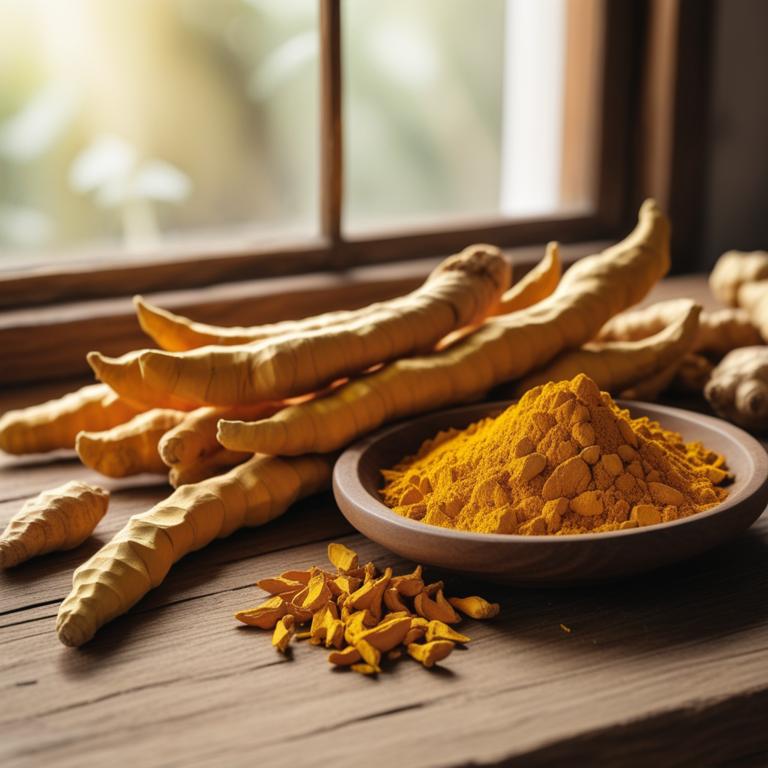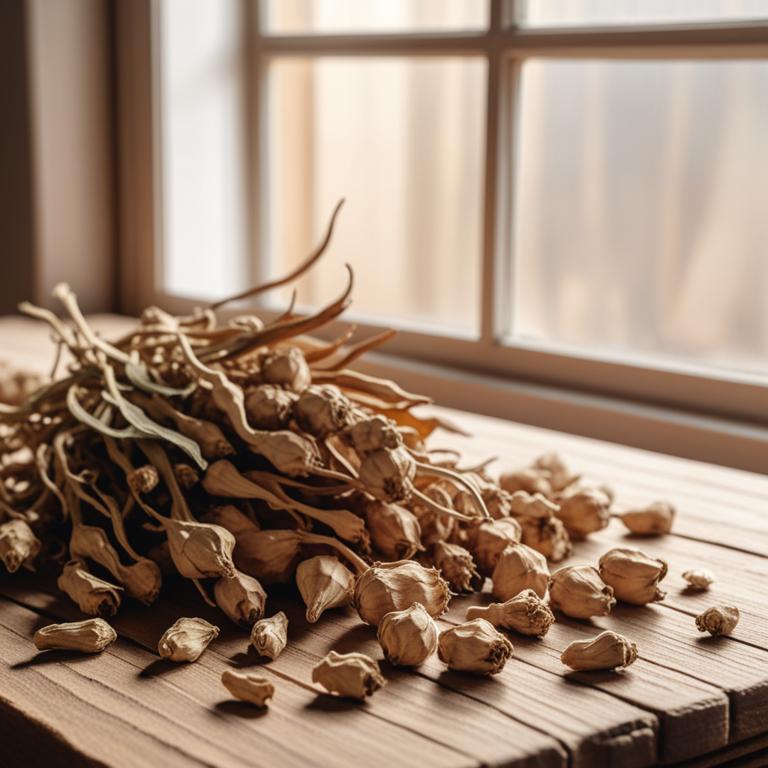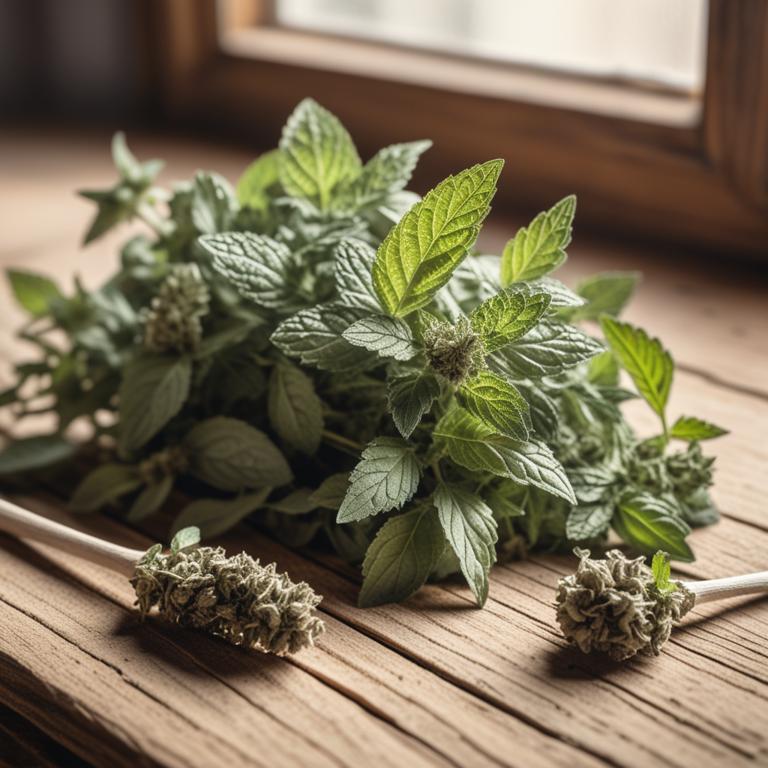Updated: Dec 1, 2024
Difficulty Swallowing: Causes, Remedies, and Medicinal Herb Options
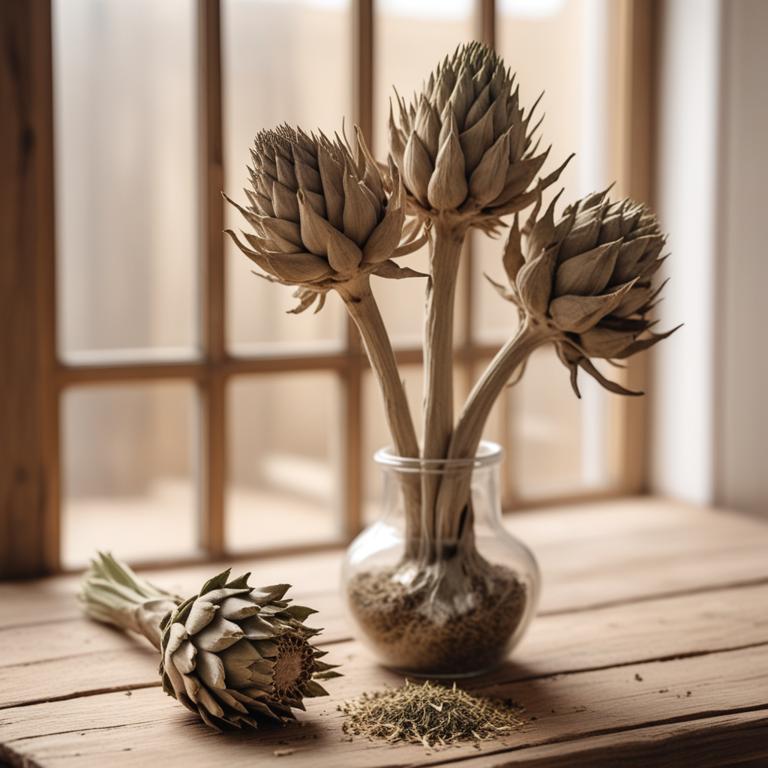
Difficulty swallowing, also known as dysphagia, can make everyday life a struggle.
It's a condition where food and liquids get stuck in the throat, making eating and drinking a challenging task. This can lead to weight loss, dehydration, and even malnutrition. The causes of difficulty swallowing can vary, from neurological conditions like Parkinson's disease, to physical conditions like esophageal stricture, or even certain medications that can affect muscle function. Some herbal remedies have been found to help alleviate difficulty swallowing. For example, slippery elm has been used for centuries to soothe the mucous membranes in the throat and esophagus, making it easier to swallow.
Marshmallow root also has anti-inflammatory properties that can help reduce swelling and irritation in the throat. Licorice root, on the other hand, has been shown to have a protective effect on the mucous membranes, helping to prevent irritation and inflammation. To use these herbs, you can make teas by steeping dried roots or bark in hot water. Slippery elm and marshmallow root can also be taken as capsules or tablets. Licorice root can be consumed as a tea or in capsule form, but be sure to use it in moderation as excessive consumption can be problematic.
It's also essential to talk to a healthcare professional before using any herbal remedies, especially if you have a pre-existing condition or are taking medications.
Table of Contents
- What are the reasons for experiencing difficulty swallowing?
- What are the positive effects of using herbs for individuals with difficulty swallowing?
- Which medicinal herbs are effective for alleviating difficulty swallowing?
- What herbal preparations are most typically used to alleviate difficulty swallowing?
- Which herbs should you steer clear of if you have difficulty swallowing?
- FAQ
What are the reasons for experiencing difficulty swallowing?
The main causes of difficulty swallowing are often related to problems with the muscles and tissues in the throat and esophagus.
One common cause is Esophageal Stricture, a narrowing of the esophagus that can make it hard for food to pass through. This usually occurs when the esophagus becomes scarred or inflamed, often due to acid reflux or inflammation. Another cause is Achalasia, a condition where the muscles in the esophagus don't work properly, causing food to get stuck. This can be due to nerve damage or a problem with the muscles themselves.
GERD, or Gastroesophageal Reflux Disease, is also a common cause. In GERD, stomach acid flows back up into the esophagus, causing irritation and inflammation that can make swallowing painful or difficult. Esophageal Cancer is another serious cause, where a tumor grows in the esophagus, blocking the passage of food. Lastly, Parkinson's disease can also cause difficulty swallowing due to the loss of nerve cells in the brain that control muscle movement.
The muscles in the throat and esophagus may become weak or uncoordinated, making it hard to swallow properly.
What are the positive effects of using herbs for individuals with difficulty swallowing?
Using herbs to help with difficulty swallowing can be really helpful.
One of the main benefits is that they can help relax the muscles in the throat, making it easier to swallow. Some herbs have anti-inflammatory properties, which can reduce swelling and irritation in the throat, allowing food to pass through smoothly.
These herbs can also help soothe and calm the digestive system, which can get upset when food gets stuck. Additionally, they can help stimulate the digestive enzymes, breaking down food into smaller pieces that are easier to swallow. Some herbs can even help calm the nervous system, reducing anxiety and stress that can make swallowing harder.
By using these herbs, people with difficulty swallowing may find it easier to eat and drink, improving their overall quality of life.
Which medicinal herbs are effective for alleviating difficulty swallowing?
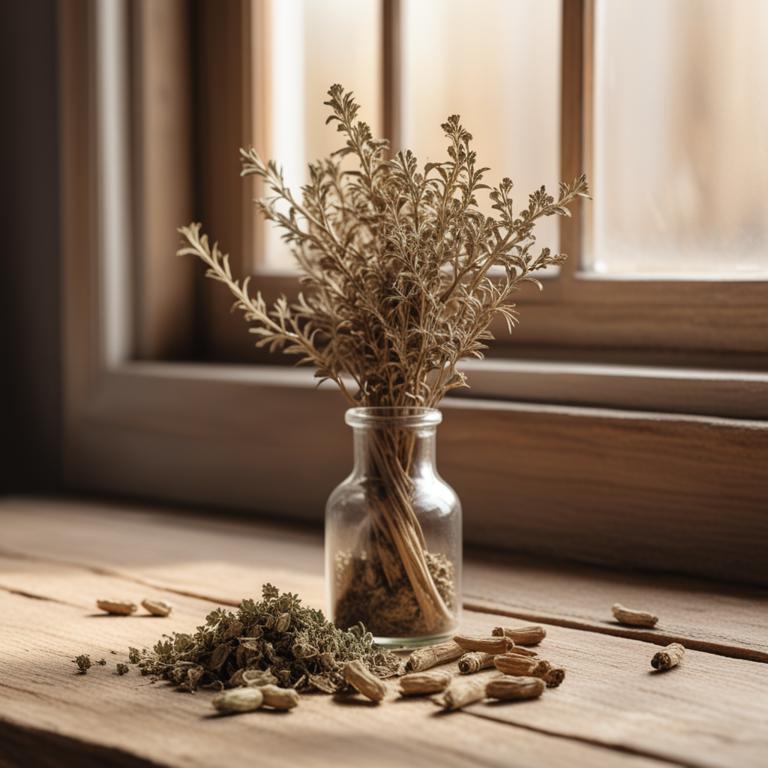
When you're having trouble swallowing, it can be really uncomfortable and even painful.
Fortunately, certain herbs can help alleviate this issue. One of these herbs is Glycyrrhiza glabra, also known as licorice root. It has anti-inflammatory properties that can soothe the mucous membranes in your throat and esophagus, making it easier to swallow. It also has a natural coating that can protect the lining of your digestive tract from irritation. Another herb that can help is Zingiber officinale, or ginger. Ginger has natural anti-inflammatory compounds that can reduce swelling and pain in the throat and esophagus, making it more comfortable to swallow. It also has a warming effect that can help relax the muscles in your throat, making it easier to swallow food.
Curcuma longa, or turmeric, is another herb that can be helpful. It contains a compound called curcumin, which has potent anti-inflammatory and antioxidant properties. These properties can help reduce inflammation and damage in the throat and esophagus, making it easier to swallow. Astragalus membranaceus, or astragalus, is an herb that can help boost your immune system, which can be weakened when you're having trouble swallowing. When your immune system is strong, your body can fight off infections and inflammation more effectively, making it easier to recover from swallowing difficulties. Finally, Zanthoxylum bungeanum, or Chinese prickly ash, is an herb that can help stimulate digestion and improve appetite. When you're having trouble swallowing, it can be hard to eat and digest food properly.
Chinese prickly ash can help stimulate your digestive system and improve your appetite, making it easier to get the nutrients you need to recover from swallowing difficulties.
What herbal preparations are most typically used to alleviate difficulty swallowing?
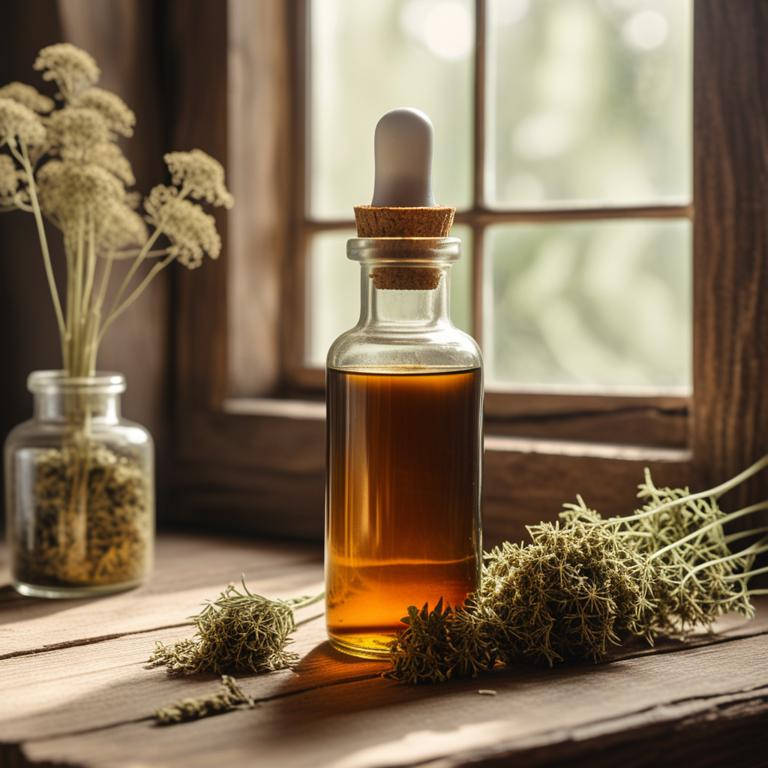
When you have trouble swallowing, it can be hard to take medicine.
But herbal preparations can help. A decoction is a liquid made by boiling herbs in water. This makes the herbs easy to drink and can be gentle on your throat. A tincture is a strong liquid made from herbs that have been soaked in alcohol. It can be added to a small amount of water, making it easier to swallow. Tinctures are often good for people who can't eat or drink much because they're very concentrated.
Capsules are small, soft gelatin packets that hold a small amount of herb powder. They're easy to swallow, and you can take them with or without water. An infusion is a liquid made by steeping herbs in hot water. Like a decoction, it's easy to drink and can be gentle on your throat. But infusions are made with hot water, which can be soothing if you have a sore throat. An elixir is a sweet liquid made from herbs and other ingredients. It's often flavored with sugar or honey, making it more pleasant to drink.
This can be helpful if you have trouble swallowing because of a sore throat or mouth sores.
Additional Resources:
Which herbs should you steer clear of if you have difficulty swallowing?
If you have trouble swallowing, it's best to steer clear of certain herbs that can make things worse.
For instance, Cinchona officinalis, also known as the fever tree, contains a compound called quinine that can irritate the digestive system and make swallowing even more difficult. Aconitum carmichaelii, or the wolf's bane, is another plant that's not suitable for people with swallowing issues, as its active ingredients can cause stomach upset and nausea.
Taxus brevifolia, or the Pacific yew, is known to produce a toxic compound that can cause severe digestive problems, including difficulty swallowing. Similarly, Digitalis purpurea, or foxglove, contains a powerful cardiac glycoside that can cause stomach irritation and make swallowing even more challenging.
Lastly, Angelica archangelica, or angelica, contains a compound that can stimulate the stomach and cause digestive issues, making it another herb to avoid if you have trouble swallowing.
FAQ
Are there any specific herbs that can prevent difficulty swallowing?
Certain herbs like slippery elm and marshmallow root may help ease difficulty swallowing.
These herbs can soothe and protect the mucous membranes in the throat, making it easier to swallow.
They also have anti-inflammatory properties that can reduce swelling and discomfort, making it more comfortable to eat and drink.
Is it safe to use herbal remedies for difficulty swallowing during pregnancy?
If you're having trouble swallowing during pregnancy, using herbal remedies can be a concern.
Some herbs, like ginger and peppermint, are commonly used to soothe digestive issues, but it's essential to check the ingredients and their safety for pregnant women.
Some herbs can stimulate the uterus and cause contractions, so it's crucial to be cautious.
Are there any herbs that can reduce the frequency of difficulty swallowing?
Some herbs may help reduce difficulty swallowing.
Ginger, for example, has anti-inflammatory properties that can ease irritation in the throat. Licorice root has been shown to soothe digestive issues, which can sometimes cause swallowing problems.
These herbs may help calm the digestive system and make swallowing easier.
Related Articles
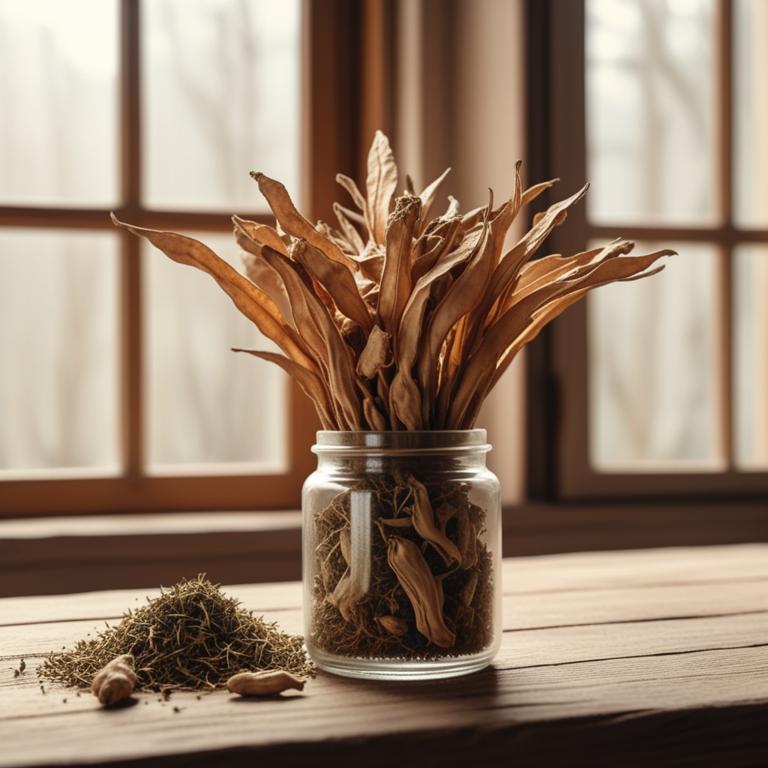
Overcoming Bitter Taste in Mouth: Natural Causes and Herbal Remedies

Cirrhosis Causes and Prevention with Medicinal Herbs and Herbs
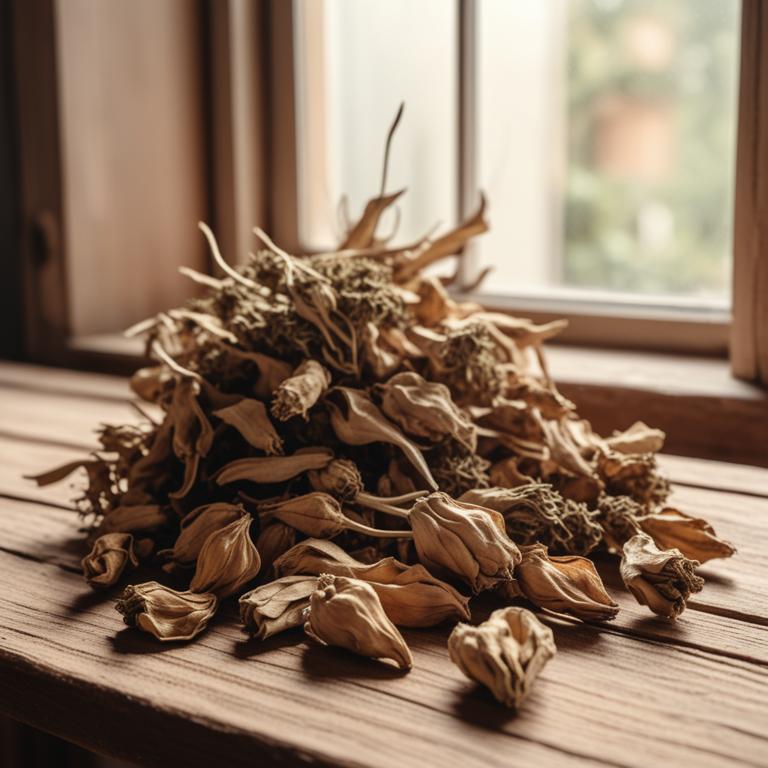
Irritable Bowel Syndrome: Understanding the Causes and Using Medicinal Herbs for Relief
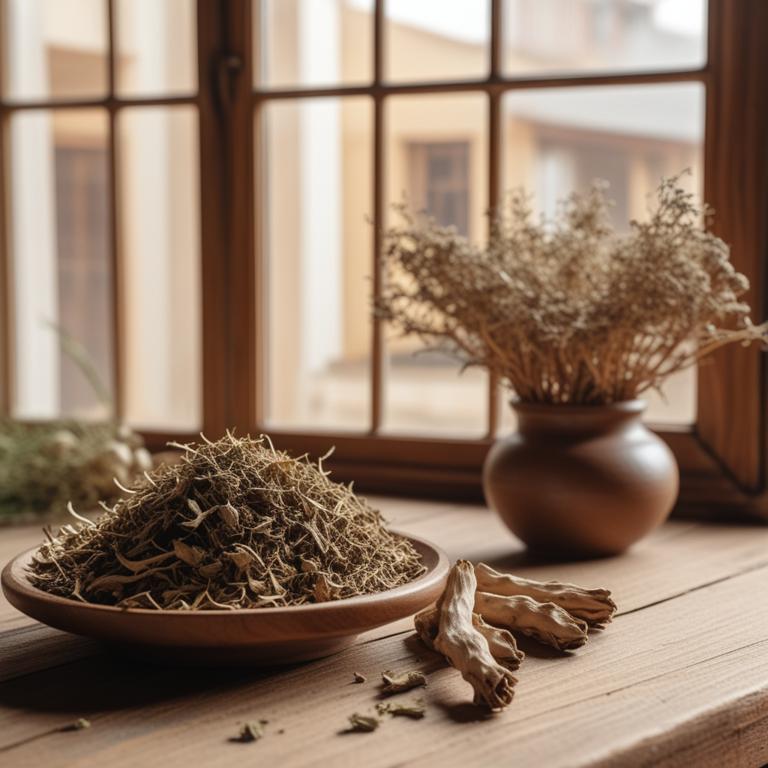
Causes, Symptoms, and Herbal Relief for Acid Reflux
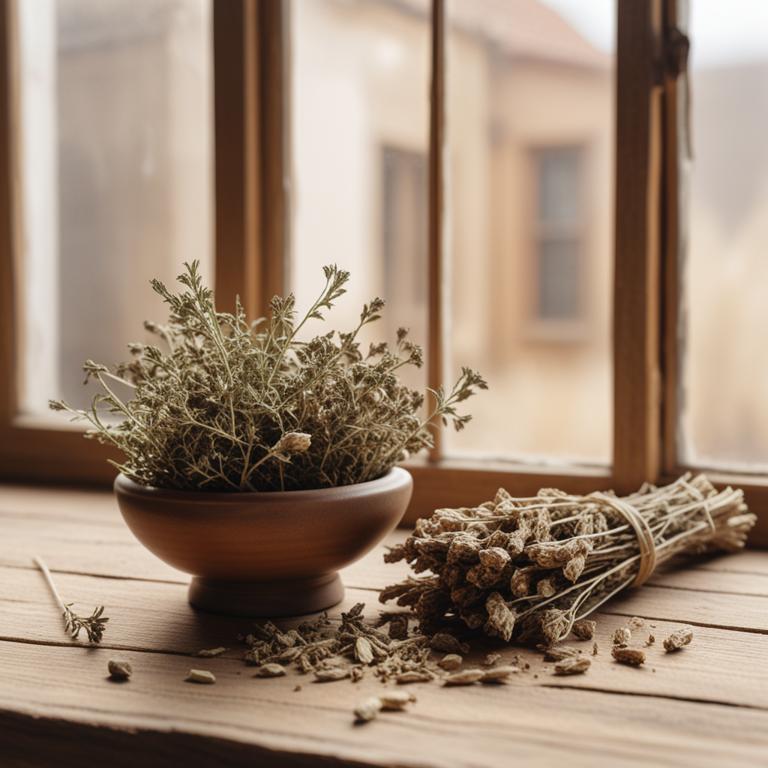
Stomach Cramps: Effective Herbal Preparations and Medicinal Plants
